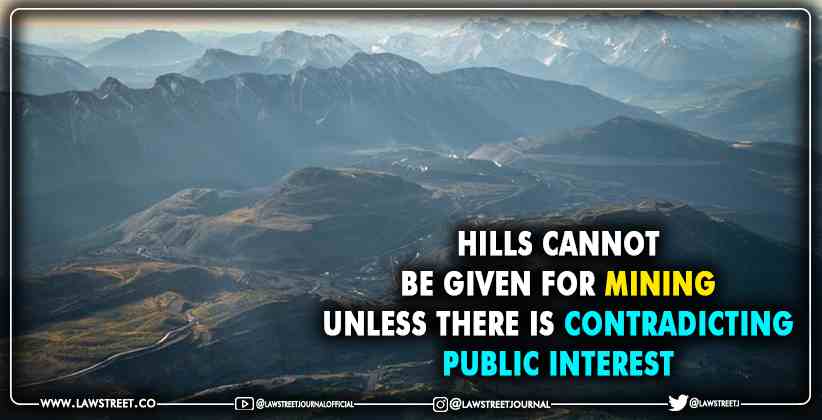The Madras HC criticized the practice of issuing licenses for mining of hillocks and hills, which is leading to the exploitation of the land, without calculating the consequences on the environment and the future generation.
The court held that the Government does not have a monopoly over the hills and hillocks to give them away for exploitation.
The judge stated that there is no restriction against mining hills that are rich in minerals. However, he exemplified that it is the constitutional obligation of both the citizens as well the governing authorities to protect the environment and ecology under Article 48-A and Article 51-A(g).
Man has continued his predatory activities without any break and Nature is losing her patience. The rubicon is about to be crossed and retribution is in the offing. The time for course correction is now or never, the judge stated.
He asserted that this is a crucial time to implant the most basic thought of all times, the most important contribution to constitutional jurisprudence: environmental law.
While the administrations can tap the hills and hillocks for mineral resources, the exploitation cannot lead to their destructions. A hill can be allowed to be exploited under certain circumstances but post-exploitation, the hill must remain, Justice Swaminathan explained.
He elucidates that those mountains, forests, hills and river are natures blessings to us and we must ensure that we are saving the environment. This is the principle of inter-generational equity.
Background:
These remarks were made while dealing with the petitions seeking to call off the quarrying operations in mottamalai village, Ayan Kollankondan village, Rajapalayam Taluk, Vrindhunagar District.
The petitioners stated that a self-help group consisting of women had breached the permits.
Harmful activities like explosions and blasting, which endanger the lives of the farmers who work nearby, are being carried out. The leaseholder encroached on a water body. He blocked the pathways of villagers. The local panchayat has also passed an order in favour of the quarrying.
The state on the other hand argues that the lease was granted in approval of mining. The District Level Environment Impact Assessment Authority had granted clearance and consent was acquired from the Tamil Nadu Pollution Control Board. It was concluded that the leaseholder had not violated any lease conditions and there has been no statutory breach.
Findings:
The Court noted that the evidence submitted by the petitioners prove the aforementioned claims. It is visible that a part of the hill has been blasted away. The Court firmly rejected the States submissions.
The Court held that the State must demonstrate that all the other places have been exhausted and the mining can only carry out if there is a public interest, per se.








